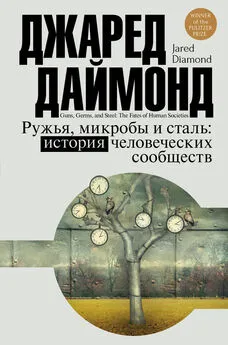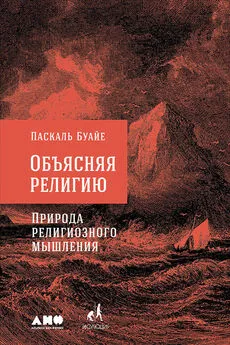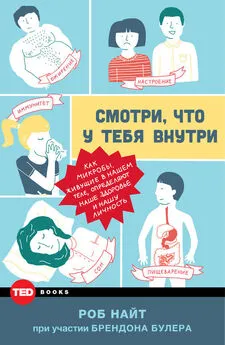Паскаль Буайе - Анатомия человеческих сообществ [Как сознание определяет наше бытие] [litres]
- Название:Анатомия человеческих сообществ [Как сознание определяет наше бытие] [litres]
- Автор:
- Жанр:
- Издательство:Литагент Альпина
- Год:2019
- Город:Москва
- ISBN:978-5-0013-9180-7
- Рейтинг:
- Избранное:Добавить в избранное
-
Отзывы:
-
Ваша оценка:
Паскаль Буайе - Анатомия человеческих сообществ [Как сознание определяет наше бытие] [litres] краткое содержание
Сопоставляя последние достижения эволюционной биологии, психологии, генетики, экономики и других научных дисциплин, автор представляет новый взгляд на устройство человеческих обществ. Буайе убедительно доказывает, насколько значимую роль когнитивные процессы играют в том, как люди выстраивают иерархии, семейные и гендерные нормы, как возникают межгрупповые конфликты и этнические стереотипы.
В фокусе его внимания находится принципиальный вопрос: как выработанные в ходе эволюции способности и предрасположенности человека объясняют то, как мы живем в обществе? И почему данные естественных наук критически важны для понимания исторических событий и социальных процессов?
Анатомия человеческих сообществ [Как сознание определяет наше бытие] [litres] - читать онлайн бесплатно ознакомительный отрывок
Интервал:
Закладка:
Henrich, J., Fehr, E., et al. (2001). "In Search of Homo Economicus: Behavioral Experiments in 15 Small-Scale Societies." American Economic Review, 91 (2), 73–78.
Herz, J. H. (2003). "The Security Dilemma in International Relations: Background and Present Problems." International Relations, 17 (4), 411–16. doi: 10.1177 / 0047117803174001
Hibbing, J. R., Smith, K. B., and Alford, J. R. (2013). Predisposed: Liberals, Conservatives, and the Biology of Political Difference . London: Taylor and Francis.
Hilbig, B. E. (2009). "Sad, Thus True: Negativity Bias in Judgments of Truth." Journal of Experimental Social Psychology , 45 (4), 983–86.
Hill, K., and Kaplan, H. S. (1999). "Life History Traits in Humans: Theory and Empirical Studies." Annual Review of Anthropology , 28 (1), 397–430.
Hinde, R. A. (1987). Individuals, Relationships and Culture: Links between Ethology and the Social Sciences. Cambridge: Cambridge University Press.
Hirschfeld, L. A. (1994). "The Acquisition of Social Categories." In L. A. Hirschfeld and S. A. Gelman (eds.), Mapping the Mind: Domain-Specificity in Culture and Cognition . New York: Cambridge University Press.
Hirschfeld, L. A. (2013). "The Myth of Mentalizing and the Primacy of Folk Sociology." In M. R. Banaji and S. A. Gelman (eds.), Navigating the Social World: What Infants, Children, and Other Species Can Teach Us , pp. 101–6. New York: Oxford University Press.
Hirschfeld, L. A., and Gelman, S. A. (1994). Mapping the Mind: Domain Specificity in Cognition and Culture. Cambridge: Cambridge University Press.
Hitchner, R. B. (2005). '"The Advantages of Wealth and Luxury': The Case for Economic Growth in the Roman Empire." In I. Morris and J. Manning (eds.), The Ancient Economy: Evidence and Models , pp. 207–22. Stanford, Calif.: Stanford University Press.
Hobbes, T. (1651). Leviathan, or, The matter, forme, and power of a common-wealth ecclesiasticall and civill . London: Printed for Andrew Ckooke [i. e., Crooke], at the Green Dragon in St. Pauls Church-yard.
Hobsbawm, E. J., and Ranger, T. O. (1983). The Invention of Tradition . Cambridge: Cambridge University Press.
Hoffer, E. (1951). The True Believer: Thoughts on the Nature of Mass Movements . New York: Harper and Row.
Hombert, J.-M., and Ohala, J. J. (1982). "Historical Development of Tone Patterns." In J. P. Maher, A. R. Bomhard, and E. F. K. Koerner (eds.), Papers from the 3rd International Conference on Historical Linguistics , pp. 75–84. Amsterdam: Benjamins.
Hooker, C. I., Paller, K. A., Gitelman, D. R., Parrish, T. B., Mesulam, M. M., and Reber, P. J. (2003). "Brain Networks for Analyzing Eye Gaze." Cognitive Brain Research , 17 (2), 406–18.
Hopkins, K. (1980). "Taxes and Trade in the Roman Empire (200 B. C. – A. D. 400)." Journal of Roman Studies , 70, 101–25.
Horne, C. (2001). "Sociologial Perspectives on the Emergence of Social Norms. In M. Hechter and K.-D. Opp (eds.), Social Norms, pp. 3–33. New York: Russell Sage Foundation.
Hornsey, M. J. (2008). "Social Identity Theory and Self-categorization Theory: A Historical Review." Social and Personality Psychology Compass , 2 (1), 204–22. doi: papers2://publication / doi / 10.1111 / j.1751–9004.2007.00066.x
Horowitz, D. L. (2001). The Deadly Ethnic Riot . Los Angeles: University of California Press.
Hrdy, S. B. (1977). "Infanticide as a Primate Reproductive Strategy." American Scientist , 65 (1), 40–49.
Hrdy, S. B. (1981). The Woman That Never Evolved . Cambridge, Mass.: Harvard University Press.
Hrdy, S. B. (2009). Mothers and Others: The Evolutionary Origins of Mutual Understanding . Cambridge, Mass.: Belknap Press of Harvard University Press.
Huang, P. C. (1996). Civil Justice in China, Representation and Practice in the Qing . Stanford: Stanford University Press.
Human Rights Watch (2008). Perpetual Minors: Human Rights Abuses Stemming from Male Guardianship and Sex Segregation in Saudi Arabia. New York: Human Rights Watch.
Humphrey, C., and Hugh-Jones, S. (1992). Barter, Exchange and Value: An Anthropological Approach. Cambridge: Cambridge University Press.
Hutchins, E. (1980). Culture and Inference: A Trobriand Case Study . Cambridge, Mass.: Harvard University Press.
Hyman, I. E., Jr., Husband, T. H., and Billings, F. J. (1995). "False Memories of Childhood Experiences." Applied Cognitive Psychology , 9 (3), 181–97.
Ibn Khaldūn, M. (1958). The Muqaddimah: An Introduction to History (trans. and ed. F. Rosenthal and N. J. Dawood). 3 vols. Princeton: Princeton University Press.
Irons, W. (2001). "Religion as a hard-to-fake sign of commitment." In R. Nesse (ed.), Evolution and the capacity for commitment , pp. 292–309. New York: Russell Sage Foundation.
Jaeggi, A. V., and Van Schaik, C. P. (2011). "The Evolution of Food Sharing in Primates". Behavioral Ecology and Sociobiology , 65 (11), 2125–40. doi: 10.1007 / s00265-011-1221-3
James, W. (1902). The Varieties of Religious Experience: A Study in Human Nature: Being the Gifford Lectures on Natural Religion Delivered at Edinburgh in 1901–1902. New York: Modern Library.
Jankowiak, W. R., and Fischer, E. (1992). "A Cross-Cultural Perspective on Romantic Love." Ethnology , 31 (2), 149–55.
Jaspers, K. (1953). The Origin and Goal of History. (Vom Ursprung und Ziel der Geschichte (1949), trans. Michael Bullock ). New Haven: Yale University Press.
Jayakody, R., and Kalil, A. (2002). "Social Fathering in Low-Income, African American Families with Preschool Children." Journal of Marriage and Family , 64 (2), 504–16.
Jolly, M., and Thomas, N. (1992). "Introduction" [to special issue: The Politics of Tradition in the Pacific]. Oceania , 62 (4), 241–48.
Jones, D. (2003). "The Generative Psychology of Kinship: Part 1: Cognitive Universals and Evolutionary Psychology." Evolution and Human Behavior , 24 (5), 303–19.
Jordan, D. P. (1979). The King's Trial: The French Revolution vs. Louis XVI . Berkeley: University of California Press.
Jowett, A. (2014). "'But if you legalise same-sex marriage…': Arguments against Marriage Equality in the British Press." Feminism and Psychology , 24 (1), 37–55. doi: 10.1177 / 0959353513510655
Jussim, L., Crawford, J. T., and Rubinstein, R. S. (2015). "Stereotype (In) accuracy in Perceptions of Groups and Individuals." Current Directions in Psychological Science , 24 (6), 490–97. doi: 10.1177 / 0963721415605257
Jussim, L., Harber, K. D., Crawford, J. T., Cain, T. R., and Cohen, F. (2005). "Social Reality Makes the Social Mind: Self-Fulfilling Prophecy, Stereotypes, Bias, and Accuracy." Interaction Studies: Social Behaviour and Communication in Biological and Artificial Systems , 6 (1), 85–102. doi: 10.1075 / is.6.1.07jus
Kaiser, M. K., Jonides, J., and Alexander, J. (1986). "Intuitive Reasoning about Abstract and Familiar Physics Problems." Memory and Cognition , 14, 308–12.
Kalyvas, S. N. (2006). The Logic of Violence in Civil War . Cambridge: Cambridge University Press.
Kamble, S., Shackelford, T. K., Pham, M., and Buss, D. M. (2014). "Indian Mate Preferences: Continuity, Sex Differences, and Cultural Change across a Quarter of a Century." Personality and Individual Differences , 70, 150–55. doi: http://dx.doi.org / 10.1016 / j.paid.2014.06.024
Kant, I. (1781). Critik der reinen Vernunft . Riga: Johann Friedrich Hartknoch.
Kant, I. (1790). Kritik der Urteilskraft . Berlin: Libau.
Kaplan, H. S., and Gurven, M. (2005). "The Natural History of Human Food Sharing and Cooperation: A Review and a New Multi-Individual Approach to the Negotiation of Norms." In H. Gintis, S. Bowles, R. Boyd, and E. Fehr (eds.), Moral Sentiments and Material Interests: The Foundations of Cooperation in Economic Life , pp. 75–113. Cambridge, Mass.: MIT Press.
Kaplan, H. S., and Gangestad, S. W. (2005). "Life History Theory and Evolutionary Psychology." In D. M. Buss (ed.), The Handbook of Evolutionary Psychology . Hoboken, N. J.: John Wiley and Sons.
Kaplan, H. S., Hill, K., Lancaster, J., and Hurtado, A. (2000). "A Theory of Human Life History Evolution: Diet, Intelligence, and Longevity." Evolutionary Anthropology , 9, 156–85.
Karp, D., Jin, N., Yamagishi, T., and Shinotsuka, H. (1993). "Raising the Minimum in the Minimal Group Paradigm." Japanese Journal of Experimental Social Psychology , 32 (3), 231–240.
Katz, P. R. (2009). Divine Justice: Religion and the Development of Chinese Legal Culture . Cambridge: Cambridge University Press.
Kaufmann, L., and Clément, F. (2007). "How Culture Comes to Mind: From Social Affordances to Cultural Analogies." Intellectica , 46 (2–3), 221–50.
Keesing, R. (1984). "Rethinking 'Mana.'" Journal of Anthropological Research , 40 (1), 137–156.
Keesing, R. M. (1993). "Kastom Re-examined." Anthropological Forum , 6 (4), 587–96.
Kelemen, D. (2004). "Are Children 'Intuitive Theists'? Reasoning about Purpose and Design in Nature." Psychological Science , 15 (5), 295–301.
Kelemen, D., and DiYanni, C. (2005). "Intuitions about Origins: Purpose and Intelligent Design in Children's Reasoning about Nature." Journal of Cognition and Development , 6 (1), 3–31.
Kelemen, D., Seston, R., and Georges, L. S. (2012). "The Designing Mind: Children's Reasoning about Intended Function and Artifact Structure." Journal of Cognition and Development , 13 (4), 439–53. doi: 10.1080 / 15248372.2011.608200
Kelly, R. L. (1995). The Foraging Spectrum: Diversity in Hunter-Gatherer Lifeways . Washington, D. C.: Smithsonian Institution Press.
Kenward, B., Karlsson, M., and Persson, J. (2011). "Over-Imitation Is Better Explained by Norm Learning Than by Distorted Causal Learning." Proceedings of the Royal Society of London B: Biological Sciences , 278 (1709), 1239–46.
Kettell, S. (2013). "I Do, Thou Shalt Not: Religious Opposition to Same-Sex Marriage in Britain." Political Quarterly , 84 (2), 247–55. doi: 10.1111 / j.1467–923X.2013.12009.x
Keupp, S., Behne, T., Zachow, J., Kasbohm, A., and Rakoczy, H. (2015). "Over-Imitation Is Not Automatic: Context Sensitivity in Children's Over-imitation and Action Interpretation of Causally Irrelevant Actions". Journal of Experimental Child Psychology , 130, 163–75.
KFF. (1996). "Survey of Americans and Economists on the Economy: The Washington Post / Kaiser Family Foundation / Harvard University Survey Project." Washington, D. C.: Kaiser Family Foundation.
Khan, T. S. (2006). Beyond Honour: A Historical Materialist Explanation of Honour-Related Violence . Oxford: Oxford University Press.
King, A. J., Johnson, D. D., and van Vugt, M. (2009). "The Origins and Evolution of Leadership." Current Biology , 19, R911 – R916. doi: 10.1016 / j.cub.2009.07.027
Kinzler, K. D., Shutts, K., Dejesus, J., and Spelke, E. S. (2009). "Accent Trumps Race in Guiding Children's Social Preferences." Social Cognition , 27 (4), 623–34. doi: 10.1521 / soco.2009.27.4.623
Kipnis, A. B. (1997). Producing Guanxi: Sentiment, Self, and Subculture in a North China Village . Durham, N. C.: Duke University Press.
Kirch, P. V. (2010). How Chiefs Became Kings: Divine Kingship and the Rise of Archaic States in Ancient Hawai'i. Berkeley: University of California Press.
Читать дальшеИнтервал:
Закладка:
![Обложка книги Паскаль Буайе - Анатомия человеческих сообществ [Как сознание определяет наше бытие] [litres]](/books/1075472/paskal-buaje-anatomiya-chelovecheskih-soobchestv-kak.webp)


![Илья Кнабенгоф - Анатомия шоу-бизнеса [Как на самом деле устроена индустрия] [litres]](/books/1059140/ilya-knabengof-anatomiya-shou.webp)
![Джесси Шелл - Геймдизайн [Как сознание определяет наше бытие] [litres]](/books/1075468/dzhessi-shell-gejmdizajn-kak-soznanie-opredelyaet-na.webp)
![Джей Эшер - Наше будущее [litres]](/books/1091325/dzhej-esher-nashe-buduchee-litres.webp)


![Олег Панков - Как очки убивают наше зрение [litres]](/books/1145718/oleg-pankov-kak-ochki-ubivayut-nashe-zrenie-litres.webp)

